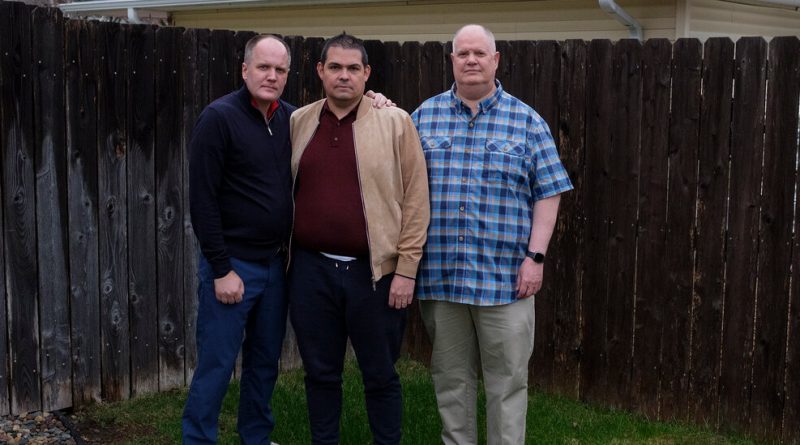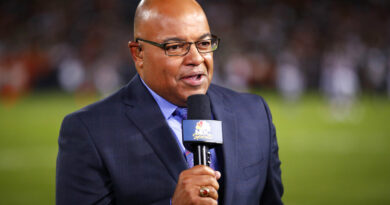When Friends Are Your Primary Concern in Making a Will
I turn 43 in May. In recent years, I’ve taken over managing my mother’s finances, which will all go to me when she passes. My father has split his assets evenly between me and my half sister. Designating their heirs was easy and conventional: Leave everything to the kids. A perpetually single, childless woman like me? Convention offers no road map.
My half sister is 20 years older than me, so I effectively grew up an only child. My Iranian mother has five sisters, but they and my cousins live in Tehran. My American father isn’t close with his siblings, so I rarely saw his side of the family.
But I’ve built meaningful friendships throughout my life, and my friends are not just my chosen family. They are — aside from my mother, 79, father, 87, and stepfather, 77 — my only family.
For years, I’ve envisioned leaving all of my assets to my friends. And yet, I have so many people to consider, and who wants to think about mortality anyway? Making a will that honored my love for them felt overwhelmingly complicated, especially when “intestate succession” laws, which govern inheritance if a person dies without a will, stop at relatives by blood, adoption or marriage. No statute considers a nonrelative.
Once I started looking into how I could bequeath all my earthly belongings to my friends, things that I assumed would be logistical nightmares turned out to be simple, from notifying far-flung friends (a contact information list should suffice) to following international tax laws. (Check to see if a country taxes the estate — as the United States does — or the beneficiary and adjust your bequest accordingly.)
What I didn’t appreciate is how putting friends in this role can mean asking them to accept major responsibilities as executors or health care agents. As a result, what I perceived to be a one-way gift is, in some ways, more true to the reciprocity of friendship itself.
The challenges of leaving assets to friends
Speaking of friends, I reconnected with one for this article: my college hallmate Reid Weisbord, a professor at Rutgers Law School who specializes in wealth transfer. Even though he helped write two major textbooks on estate planning, my situation is not one he has considered in depth.
Mr. Weisbord said people rarely considered estate-planning challenges like mine. “Our society can be really biased against people who don’t have children or aren’t married,” he said.
Some legal websites advise circumventing wills altogether by giving assets to friends while you’re alive and of sound mind so that no one can challenge your will in court after your death. According to Mr. Weisbord, only intestate heirs — family, in other words — and anyone who was named in a prior will can do so.
Unfortunately, accurate statistics on the number of contested wills are scarce. Last year, Mr. Weisbord co-wrote an article that examined 443 wills probated in San Francisco from 2014 to 2016 and found that 11.5 percent went into litigation — notably higher than the estimates of 1 to 3.5 percent from studies done between 1950 and 1987. Mr. Weisbord and his co-author, David Horton, a law professor at the University of California, Davis, found that the most common reasons for litigation were wrongful influence, or taking advantage of a person’s incapacity, and concerns about the suitability of the executor.
One potential way to limit such challenges is to note explicitly in your will if you are omitting someone, said John G. Kelso, an estate lawyer in Asheville, N.C.
While Mr. Weisbord cautioned that it was difficult to make any broad conclusions from the data, given the geographic and temporal specificity, the article does touch upon an issue that both he and Mr. Kelso said I should pay closer attention to as a single, childless person: planning for incapacity.
“If you don’t have a partner or a spouse or a child, you really need to think very carefully about an advanced medical directive, because there may not be a person that you’re comfortable appointing as a proxy directive to make those decisions on your behalf,” Mr. Weisbord said.
Similar care should go into whom I ask to be executor. Mr. Weisbord said to choose someone trustworthy who is willing and able to do it competently.
It’s not as simple as asking your best friend, however. “Naming somebody as executor is not an honorary role, you know — it’s a job,” Mr. Kelso said. “That comes with responsibilities and a time commitment, and liability.”
When friends become executors
David Staehlin, 62, never married nor had children. “I’ve just been happy being single,” he said. He made his first will when he joined the Navy in 1986, leaving everything to his parents. A lot had changed when he updated his will last June.
Since 1996, Mr. Staehlin has lived outside St. Paul, Minn., far from his mother and five siblings, who live in Nebraska, Missouri and Colorado. “I love my family and don’t have any complaints against them,” he said. However, he said, he is not very involved in their lives, given the distance.
Mr. Staehlin plans to leave $10,000 to each of his siblings and his mother. He has also designated 75 percent of his 401(k) plan to his local Veterans of Foreign Wars post, where he volunteers several times a week.
Everything else will go to his two best friends, whom he calls “my Minnesota family.” Mr. Staehlin met Adam Ford in 2004 when Mr. Ford joined the volunteer St. Paul Police Reserve, where Mr. Staehlin was patrol commander. Soon, Mr. Ford introduced Mr. Staehlin to his partner, Ryan Calvin.
Their friendship quickly deepened. Mr. Staehlin took care of Mr. Ford and Mr. Calvin’s dogs when they traveled. When the couple married, Mr. Staehlin was Mr. Ford’s witness. Mr. Staehlin once returned from vacation to find that the couple had rebuilt his back porch. They took Mr. Staehlin to San Diego to visit the U.S.S. Midway Museum to celebrate his retirement.
Mr. Ford, who is an only child, described Mr. Staehlin as more like a brother than a friend.
Mr. Staehlin first asked Mr. Ford and Mr. Calvin to serve as his primary and secondary health care agents, as his agents under power of attorney and as his executors, and they agreed. The couple already had a sense of the responsibilities: Mr. Calvin, 47, has a law degree, and Mr. Ford, 46, helped his mother when she had to execute the estates of her father and husband when they died within months of each other.
“There is a lot of work in doing this,” Mr. Calvin said. At the same time, it is an honor, he said.
The couple agreed without knowing how much Mr. Staehlin had left them. “Adam and Ryan aren’t doing bad financially,” Mr. Staehlin said. “It’s an appreciation of their friendship for me. It’ll make their life even a little bit better than it already is.”
Mr. Ford hasn’t even opened the folder with their copy of the will since Mr. Staehlin gave it to them.
“I don’t want to know all the details,” he said. “Let’s just make the most of life and enjoy it as much as we can.”
Friends as beneficiaries
Though she grew up and went to college in Colorado Springs, Stephanie Novakowski, 42, lives in Nova Scotia with her husband, a member of the Canadian military. Two years ago, the couple, who have no children, made their wills. The bulk of their assets currently go to their Canadian goddaughter.
Ms. Novakowski, however, has two 401(k) accounts from working in the United States. To avoid international tax issues, she named two college friends who live there as the primary beneficiaries. Retirement accounts, like bank accounts and insurance policies, are “payable on death” or “transfer on death” and, therefore, can be passed along without a will if a beneficiary is listed.
“These are the people that I feel ultimately know me better than sometimes I know myself,” Ms. Novakowski said of her friends.
She based her choices on who she felt would have the greatest need for retirement money. One friend, for example, takes care of her elderly parents as well as her children, and her husband is recovering from cancer.
“I just don’t know how much savings they’re really going to be able to accumulate by the time they go to retire,” Ms. Novakowski said. A third friend married into wealth, so while she is Ms. Novakowski’s backup health care proxy behind her husband, she is not a beneficiary.
“I don’t even really generally think of it as my money,” Ms. Novakowski said. “I won’t actually be touching that money unless we really need it.”
The gift of friendship
The imperfect analogy of friends as family is useful shorthand to explain their importance, given the “conceptual gulf” in our society when it comes to intimate, platonic friendships. In the absence of siblings, a partner and children, my friends are the ones who listen to my troubles, celebrate my wins and share my memories.
“As single children, I think we probably value and regard our friendships perhaps more than people that have had multiple siblings,” Ms. Novakowski said.
Friends can also opt out of obligations without legal or cultural ramifications, which makes me treasure them more: My friends know me and stick with me anyway. Because they have no expectations of inheritance, leaving my assets to them is a joyful act.
As Mr. Kelso asked: “Why are we leaving money to people anyway? Is it because they deserve it? Is it because they need it? Is it based on how much I love them?”
I don’t know about merit, but I plan to pay attention to need when dividing my assets. Love is a given. Having assets to pass on is a privilege. Having friends to leave them to is a gift.
Source: Read Full Article


